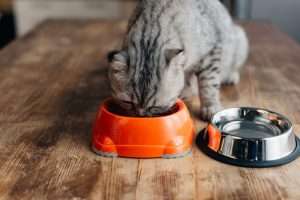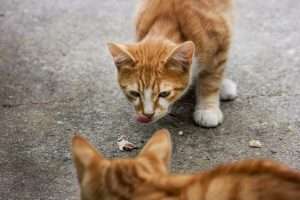Table of Contents
The Nutritional Value of Raspberries
Raspberries are a delicious and nutritious fruit that are loved by many humans, but can they also be enjoyed by cats? In this section, we’ll explore the nutritional value of raspberries for cats and discuss the potential benefits and risks of adding them to a feline’s diet.
Nutritional Value of Raspberries for Cats
Raspberries are a good source of vitamins, minerals, and antioxidants, which are important for maintaining a healthy body. They contain high levels of vitamin C, vitamin K, manganese, and fiber, all of which can benefit a cat’s health.
Vitamin C is essential for boosting the immune system and helping the body to fight off infections. Vitamin K is important for maintaining healthy blood clotting and bone health, while manganese is a mineral that plays a role in many bodily functions, including metabolism and bone development. Fiber is important for maintaining digestive health and preventing constipation.
In addition to these nutrients, raspberries also contain antioxidants, such as ellagic acid and quercetin, which can help to protect against cellular damage and reduce inflammation in the body. These antioxidants can also help to prevent certain types of cancer and improve heart health.
Potential Risks and Harm of Feeding Raspberries to Cats
While raspberries can be a healthy addition to a cat’s diet, it’s important to remember that they should only be given in moderation. Too many raspberries can cause digestive problems, such as diarrhea and upset stomach.
It’s also important to note that raspberries contain natural sugars, which can contribute to weight gain and other health problems if consumed in excess. For this reason, it’s recommended to limit the amount of raspberries given to cats and to incorporate them into a balanced and varied diet.
In addition, it’s important to wash raspberries thoroughly before giving them to cats to remove any potential pesticides or other harmful chemicals.
Overall, raspberries can be a healthy and delicious treat for cats, but they should be given in moderation and as part of a balanced diet. In the next section, we’ll explore whether or not cats can eat raspberries and if it’s safe for feline consumption.
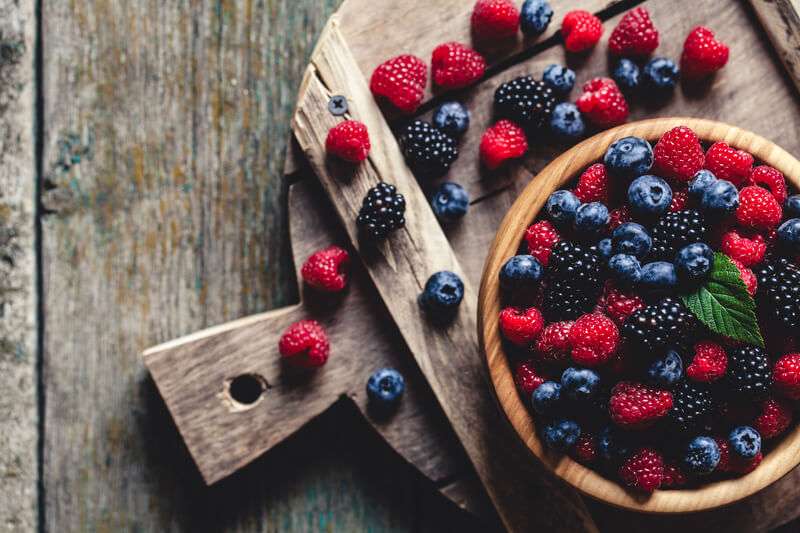
Can Cats Eat Raspberries?
Raspberries are a type of fruit that many humans enjoy due to their sweet taste and health benefits. However, not all fruits are safe for cats to consume. So, can cats eat raspberries?
The answer is yes, cats can eat raspberries, but it is important to do so in moderation. Raspberries are not toxic to cats, but they do not provide essential nutrients for their diet either. Therefore, raspberries should only be given as a treat or occasional snack.
It is essential to note that some cats may be allergic to raspberries, just like humans. If your cat has never tried raspberries before, it is best to introduce them slowly and watch for any signs of an allergic reaction, such as vomiting, diarrhea, or itching. If your cat has a history of allergies, it may be best to avoid giving them raspberries altogether.
Another potential risk of feeding raspberries to cats is the choking hazard they pose. The small size of raspberries makes them easy to swallow whole, which can lead to choking or gastrointestinal obstruction. To avoid this risk, it is best to mash or chop the raspberries into small pieces before feeding them to your cat.
Finally, raspberries contain natural sugar, which means that they can cause digestive issues if fed in large quantities. Too many raspberries can lead to diarrhea, upset stomach, or other digestive problems. As such, it is important to feed raspberries to your cat in moderation and only as an occasional treat.
In summary, cats can eat raspberries, but they should only be fed in moderation as a treat or occasional snack. It is also essential to watch for any allergic reactions and to avoid feeding whole raspberries to your cat to prevent choking or gastrointestinal obstruction.
Alternatives to Raspberries for Cats
While raspberries are safe for cats to eat in moderation, it’s important to provide a variety of fruits in their diet to ensure they receive a balance of nutrients. Here are some alternative fruits that are safe for cats to eat:
Blueberries: Blueberries are a good source of antioxidants and vitamin C. They are also low in calories and high in fiber, making them a great option for cats who need to maintain a healthy weight. Blueberries can be served fresh or frozen, and can be added to your cat’s food or served as a treat.
Watermelon: Watermelon is a hydrating fruit that is rich in vitamins A and C. It also contains lycopene, which is an antioxidant that can help protect against certain types of cancer. Watermelon can be served diced or blended into a puree, and can be a refreshing treat for your cat on a hot day.
Bananas: Bananas are high in potassium, which is important for maintaining healthy muscles and nerves. They also contain vitamin C and fiber. Bananas can be served sliced or mashed, and can be added to your cat’s food or served as a treat.
When introducing new fruits to your cat’s diet, it’s important to do so gradually and in small amounts. This will help prevent any digestive upset or allergic reactions. It’s also important to wash fruits thoroughly before serving them to your cat to remove any pesticides or other harmful substances.
Incorporating fruits into your cat’s diet is a great way to provide them with a variety of nutrients and keep their diet interesting. However, it’s important to remember that fruits should only be a small part of your cat’s overall diet, and should not be fed in excess. A balanced diet that includes a variety of proteins, fats, and carbohydrates is essential for your cat’s health and wellbeing.
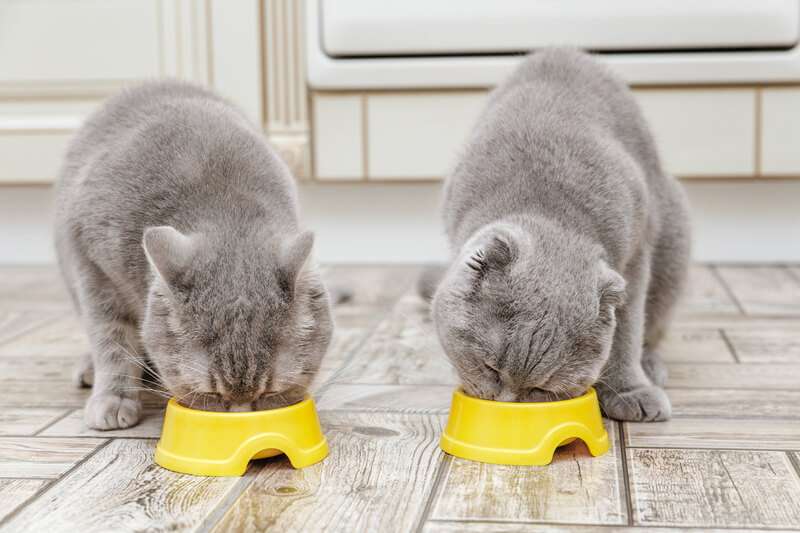
FAQs
No, there are no types of raspberries that are toxic to cats. However, it's important to note that some berries that resemble raspberries, such as blackberries, may have thorns that could be harmful if ingested.
While raspberries are safe for cats to eat, it's important to remember that they should be consumed in moderation as part of a balanced diet. It's not recommended to feed your cat raspberries every day, as they are not a necessary part of their diet.
Yes, it's okay to give your cat a small amount of raspberries as an occasional treat. However, it's important to keep in mind that too many raspberries can lead to digestive problems in cats.
Raspberries are a good source of fiber, vitamin C, and antioxidants, which can all contribute to a cat's overall health.
If you're introducing raspberries to your cat's diet for the first time, it's important to monitor them closely for any signs of an allergic reaction. Symptoms may include vomiting, diarrhea, itching, or swelling around the face or mouth. If you notice any of these symptoms, discontinue feeding your cat raspberries and consult with your veterinarian.
Conclusion
In conclusion, we have explored the topic of whether or not cats can eat raspberries. We have discussed the nutritional value of raspberries for cats, the potential risks and harm of feeding too many raspberries to cats, and offered some alternative fruits that are safe for cats to eat. It is important to note that while raspberries can be a healthy addition to a cat’s diet in moderation, they should not be the sole source of nutrition for cats.
It is crucial to understand what foods are safe for cats to eat and to incorporate a balanced diet into their daily routine. Fruits like blueberries, watermelon, and bananas can also provide essential nutrients for cats. It is recommended to speak with your veterinarian if you have any questions or concerns about your cat’s diet or health.
Overall, while raspberries may seem like a tasty treat for your feline friend, it is important to approach their diet with caution and ensure that they are receiving the proper nutrition to maintain their health and well-being.


